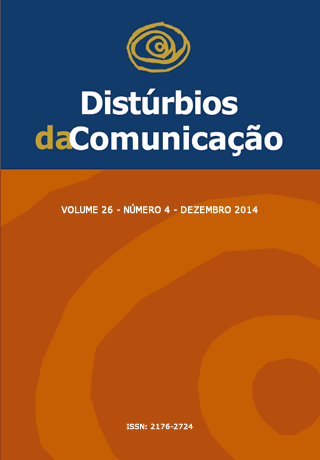Newborn hearing screening and the impact of the results
Keywords:
neonatal screening, hearing loss, anxiety, parents, mothersAbstract
Introduction: The major challenge in newborn hearing screening (NHS) is the right techniques thatidentify hearing impaired children with low numbers of false-positives and false-negatives. However,the number of false-positive and the fault in the NHS could be stressful and create a negative impact ontheir parents. Method: The study was conducted in a public hospital in São Paulo, between May andOctober 2008. In the first stage 64 volunteers were interviewed whose neonates passed or not the NHS.In the second stage, eight mothers who attended in return, were interviewed. Results and Discussion:The volunteers, 18.7% had a prior understanding of the NHS, the ignorance can cause more stress andnegative impact. 54.6% of parents were concerned for testing. The concern has no direct relationship withthe results. The degree of concern after the information of income, 31.2% cited having a level of concernrelated to TAN failure. In the second stage, eight mothers were interviewed. A mother was very worried,one whose son continued keeping inadequate response after the test. Conclusions: The NHS generatesa concern during and after the NHS process, regardless of the results satisfactory or not. Mothers whoseinfants failed the NHS showed a greater concern with the results, thus requiring assistance, support andinformation before discharge from hospital. The information must be made orally and through illustratedleaflets, from gestation to greater understanding of the NHS process.Downloads
Download data is not yet available.
Metrics
Metrics Loading ...
Downloads
Published
2014-12-10
Issue
Section
Artigos
License
Copyright (c) 2015 Thaysa Vidal Freitas, Doris Ruthy Lewis, Gabriela Bueno de Nóbrega

This work is licensed under a Creative Commons Attribution 4.0 International License.









